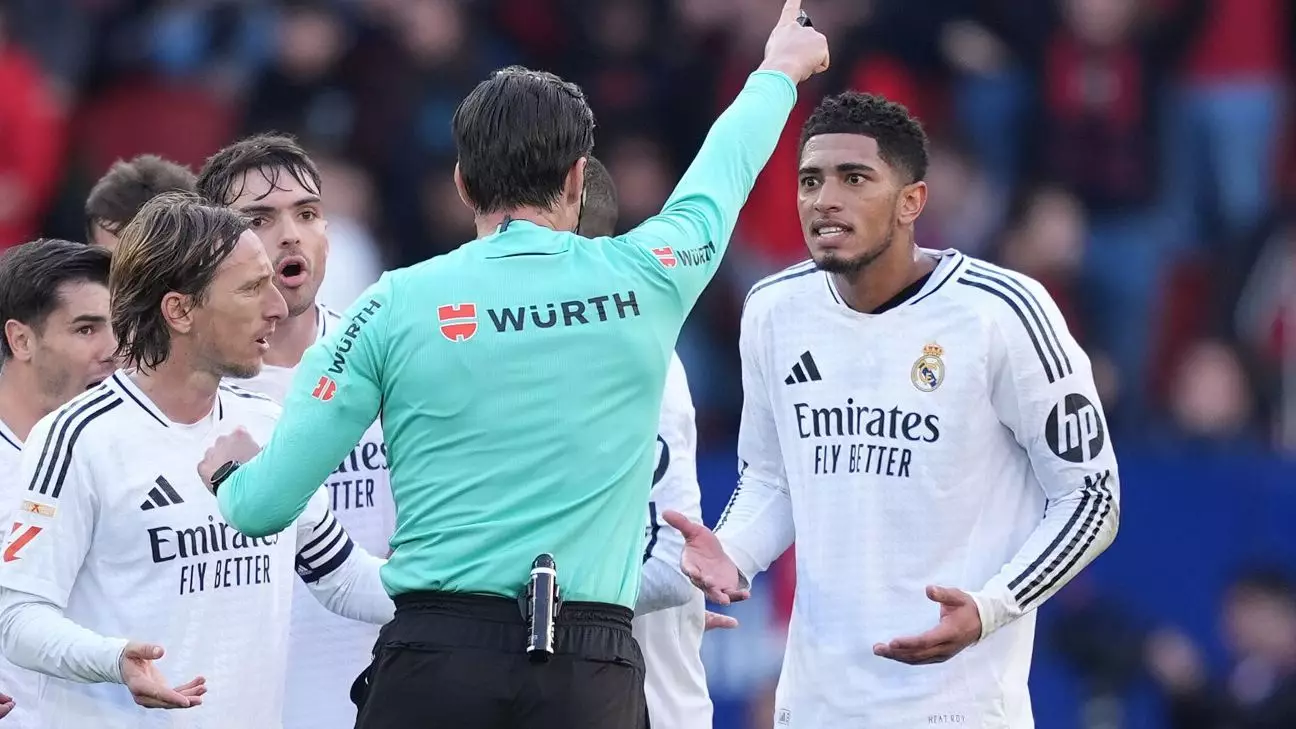In recent days, the footballing world has been rocked by the fallout surrounding an incident involving referee Jose Munuera Montero and Real Madrid midfielder Jude Bellingham. During a tightly contested match against Osasuna that ended in a 1-1 draw, Montero issued Bellingham a straight red card, citing foul language as the cause. This decision ignited a wave of backlash directed at the referee, illustrating a significant and troubling trend—a rising tide of abuse directed at referees, particularly in Spain.
The Royal Spanish Football Federation (RFEF) has come forth to support Montero, expressing deep concern over the hostility that match officials are subjected to, particularly through social media channels. The RFEF’s statement highlights that the referee’s family has also been targeted by these online attacks, emphasizing the pervasive nature of this abuse. It is alarming to see that what begins as verbal vitriol towards officials has, in other situations, escalated into physical violence, particularly at lower levels of competition. The federation condemned this phenomenon, asserting that such conduct not only undermines the authority of referees but also threatens the integrity of the sport.
On the other hand, Jude Bellingham’s perspective adds another layer to this complex situation. The young midfielder claimed that Montero misinterpreted his expressions, indicating that what he expressed was not meant as an insult but rather as a personal exclamation in the heat of the game. This claim underscores a crucial aspect of sports competition: the emotional and psychological intensity players experience, which can often lead to miscommunication. Bellingham defended himself by stating that, as an English player, his expressions might come off differently than intended, suggesting that cultural nuances play a significant role in such interactions. His remarks point to a larger issue within the sporting community: the need for clarity and understanding between referees and players.
The incident should serve as a catalyst for discussion about emotional intelligence and communication within the sports arena. Referees and players alike must navigate an environment fraught with pressure, where split-second decisions can have significant consequences. This highlights a vital necessity for ongoing training—not just for referees, but also for players, coaches, and teams to foster mutual respect and understanding. Additionally, the RFEF’s acknowledgment of the mental toll that such abuse inflicts on referees can prompt further initiatives to protect match officials and ensure their well-being.
As the football community grapples with these challenges, it becomes clear that addressing abuse towards referees is critical to preserving the sport’s integrity. The case of Jose Munuera Montero and Jude Bellingham presents an opportunity to build a foundation rooted in respect and understanding. As fans, players, and officials work together, they can cultivate an environment where healthy competition thrives, free from hatred and violence. Change may be slow, but through concerted efforts and open dialogue, there is hope for a more respectful future in football.

